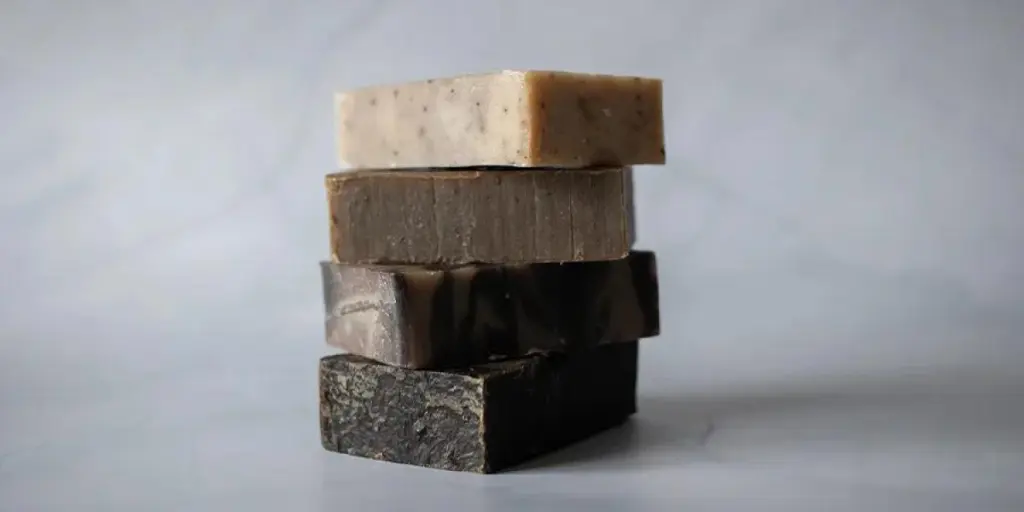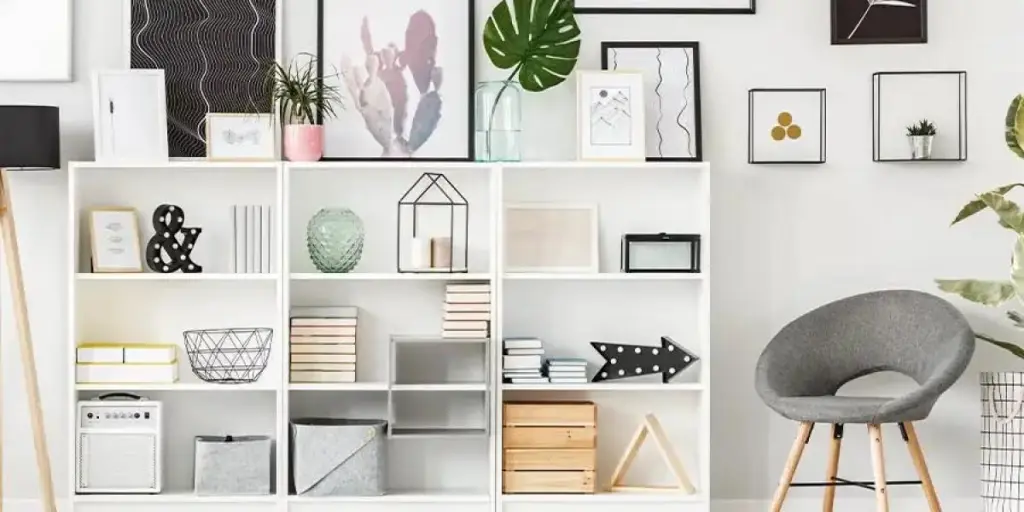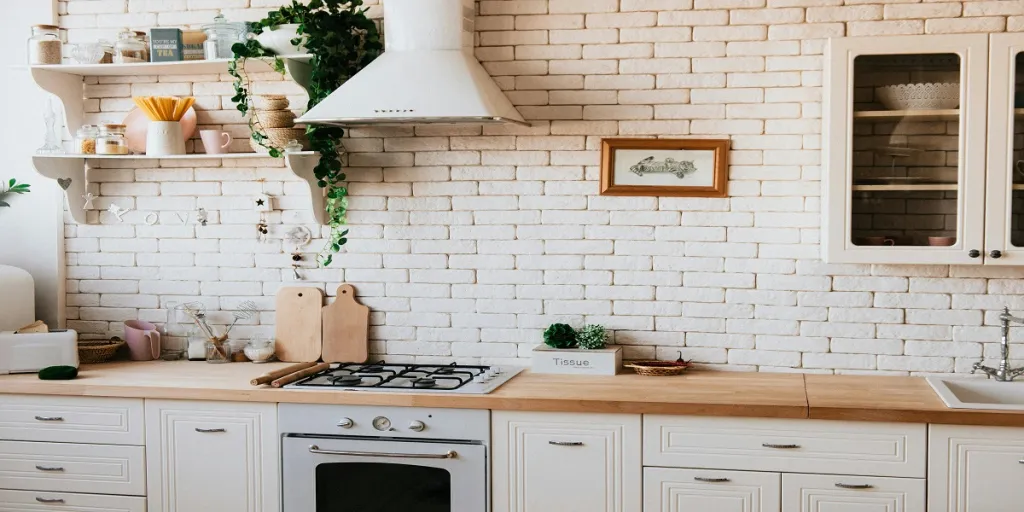For most of us, home is where we feel the most warmth, peace, and comfort, whether it’s after a long day of work or during those precious moments of leisure when we’re free from distractions and stress. That’s why many even go the extra mile to ensure their home decor reflects the cozy, relaxing vibes of rustic or coastal design themes. The good news is that there’s one single type of wall panel style that can effortlessly achieve such a look and feel: shiplap walls.
Read on to explore what makes shiplap walls unique, and discover the top design styles and materials, as well as how to select the best options for your buyers in 2025.
Table of Contents
1. Understanding the shiplap wall global market outlook
2. Evaluating shiplap wall options from a seller’s perspective
3. Top shiplap wall styles and materials
4. Delivering quality and style
Understanding shiplap wall global market outlook
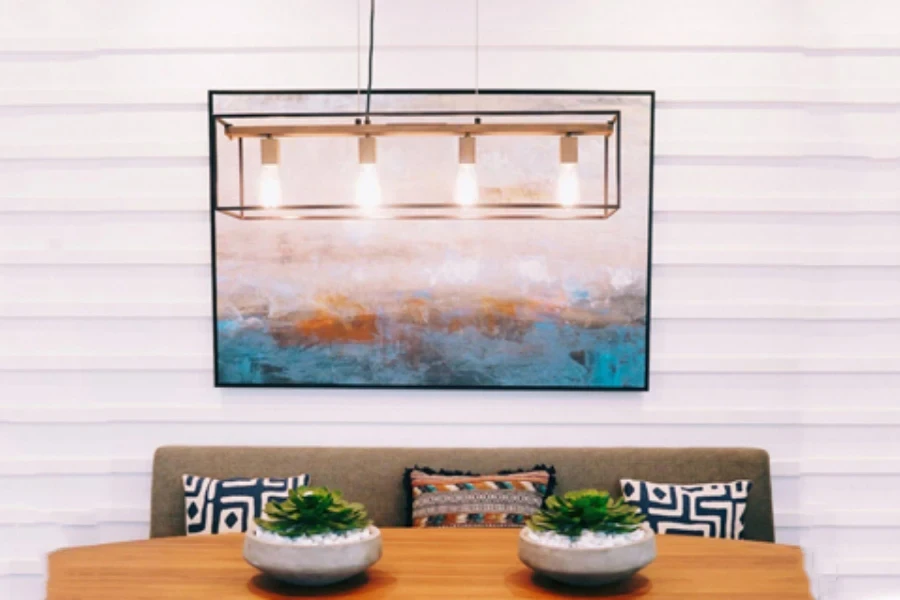
Staying true to its name, shiplap is indeed related to shipbuilding, with roots traceable back to around 300 AD (Viking era), when it served as the primary choice for the exterior cladding of ships. Its waterproof and highly durable qualities, made possible by its defining overlapping structure and rabbet joint, provide the much-needed structural integrity and serve as the unique feature that makes shiplap valuable both as an aesthetic enhancement and a practical solution.
While shiplap today is no longer limited to shipbuilding and exterior siding, it has also become a desired look and interior style for many homeowners. The shiplap trend was made popular particularly because of home renovation shows like Fixer Upper, which featured U.S. designers Chip and Joanna Gaines in the 2010s. Its overlapping horizontal shiplap arrangement, which offered better protection from water infiltration in the past, continues to symbolize its excellent durability and long-lasting attributes.
Shiplap walls can be constructed from various materials, including wood, PVC, metal, or vinyl, each of which contributes different qualities and styles to suit various aesthetic appeal and functional needs. Essentially, shiplap is both a construction material and a design style that’s well-suited for both exterior and interior applications.
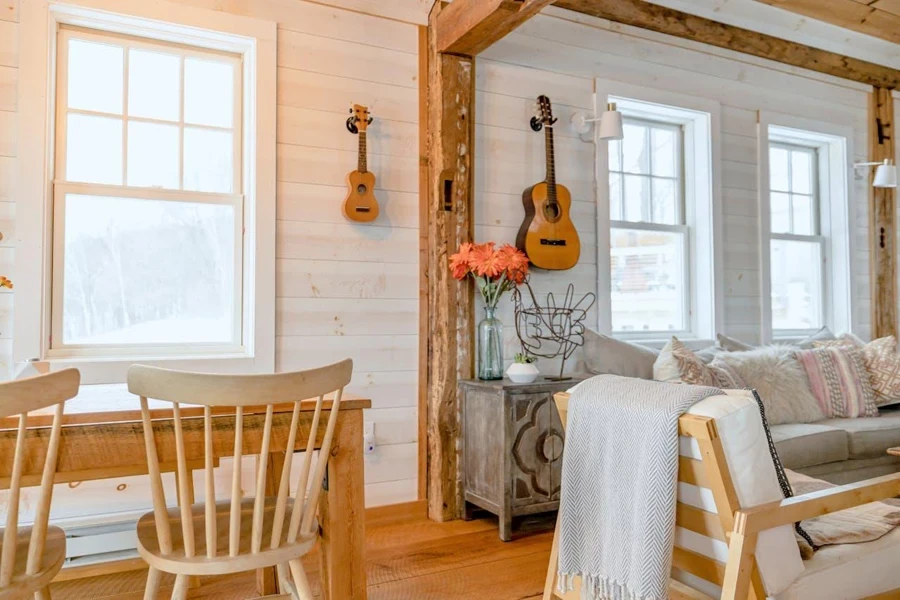
In terms of market outlook, shiplap wall is part of the global wall panels market, which was estimated to grow to US$ 25.1 billion by 2032 from US$ 17.16 billion in 2023 at a moderate compound annual growth rate (CAGR) of 4.3% from 2024. Simultaneously, the worldwide wood based panel market is also expected to grow at a healthy CAGR of 6.75% between 2023 to 2032, reaching US$ 328,787.01 million by the end of the forecast period.
Overall, expansion in the construction industry, especially the rising demand for sustainable construction and modular designs, is credited as the main catalyst behind the stable and consistent growth of the global wall panel and wood-based panel markets. Furthermore, technological advancements have reinforced this growth through improvements in both panel materials and manufacturing processes.
Evaluating shiplap wall options from a seller’s perspective
1) Highlight selection varieties
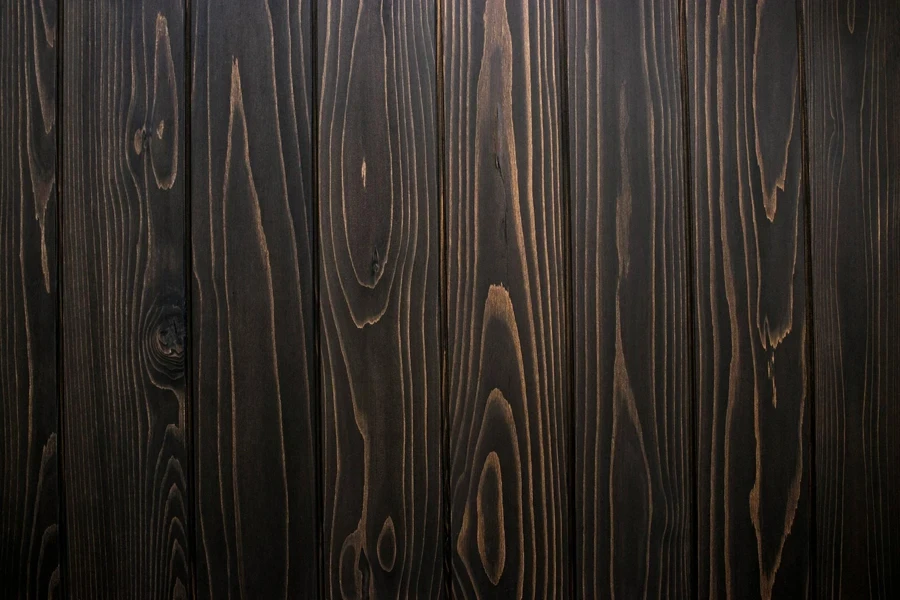
Shiplap planks are typically sold individually and vary in length, width, and thickness. Shiplap boards, which are generally larger than planks, are also available in a range of sizes and can be crafted from materials like wood or PVC. Since customers tend to make their shiplap choices based on the entire room size and design needs, it’s essential for sellers to stock different variations of shiplap products to satisfy varied preferences.
But which size is the most ideal choice? Among the various options, standard-sized 6-inch shiplap boards are highly favored by homeowners and interior designers. This most common standard size of 6 inches is also widely recommended across the industry for its adaptability and versatile look in various spaces.
To enhance design flexibility, sellers should also provide both narrow shiplap options and wide shiplap boards. For example, shiplap slats offer a narrower profile for detailed, intricate designs, while larger shiplap sheets allow for faster installation and are especially ideal for expansive spaces.
2) Easy or DIY-Friendly Installation
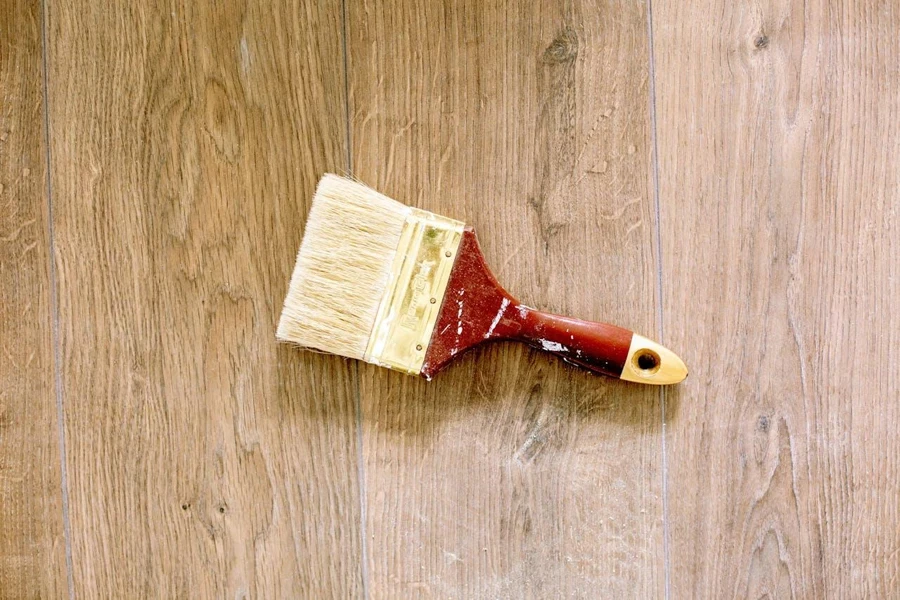
Shiplap walls have long been a favorite among DIY enthusiasts due to their straightforward and hassle-free installation. For sellers, it’s beneficial to stock authentic shiplap wall panels with rabbeted edges that allow the boards to interlock securely. These panels can be nailed directly onto wall studs without needing advanced tools, which makes them ideal as DIY shiplap walls.
Meanwhile, sourcing both thin, lightweight shiplap strips and larger shiplap options, like shiplap sheets, is another effective way to attract a range of DIY customers. Thin strips can be marketed as easy to handle, while large shiplap sheets are capable of providing quick coverage, especially for those tackling larger areas.
3) Offer ready-to-use options
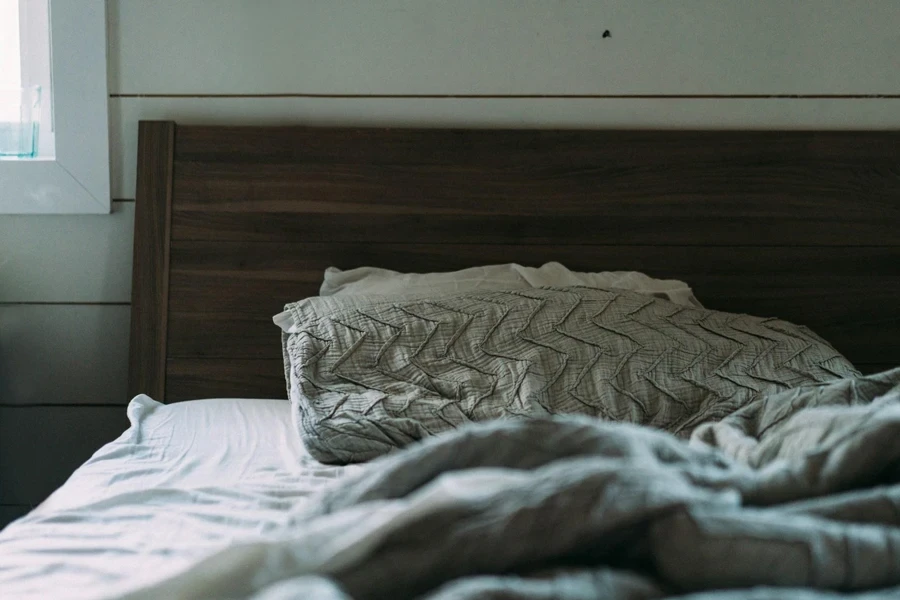
By the same token, sellers can offer more ready-to-use shiplap options, which attract not only DIY hobbyists but also contractors or builders who appreciate easy-to-install solutions. These user-ready shiplap wall panels include pre-primed shiplap options and prefinished shiplap choices, such as white primed shiplap boards treated with a white base coat that serves as a primer layer.
White primed shiplap boards, for example, can be used directly for a crisp, clean look, especially for those who prefer a natural white shiplap finish. Alternatively, they can also be easily painted over to achieve various colors, all while minimizing the need for additional prep work.
Prefinished shiplap wall panels, on the other hand, refer to shiplap products that are fully treated—not only primed but also completed with a final coat of paint or stain. These fully finished shiplap boards offer cost efficiency by requiring no further work after setup and can be used immediately following installation.
4) Present moisture-resistant solutions

Users tend to select shiplap materials, texture, and designs based on the specific needs of their spaces. For instance, moisture-resistant options such as vinyl, composite, PVC, and cedar are popular for numerous applications in high-moisture areas like bathrooms and kitchens. This indeed aligns with shiplap’s history as a preferred choice for high-humidity places and exterior projects, tracing back to its roots in the shipbuilding field.
To expand market appeal and reach, It’s therefore helpful for sellers to offer a variety of shiplap boards and thinner shiplap slats made from moisture-resistant materials. PVC shiplap boards and vinyl shiplap panels are some of the excellent examples, as their textured finishes repel water, appealing to customers working on kitchen or bathroom projects.
Top shiplap wall styles and materials
Traditional shiplap wall style

Traditionally, the shiplap wall style has long been associated with a charming farmhouse or rustic ambiance and a cozy coastal appeal. These enduring styles continue to inspire people to adopt shiplap designs today.
And similar to other classic look design approaches, natural wood shiplap materials—especially those made from solid wood species like cedar wood and pine—are the preferred choices to create an authentic, rustic look or farmhouse feel. For a refined finish, rather than using untreated wood, milled wooden shiplap is a popular choice and more recommended option, as it provides smoother, precisely cut wooden planks with cleaner edges.
At the same time, traditional shiplap designs often incorporate shiplap for exterior walls. Shiplap siding, which protects a home’s outer walls while enhancing its visual appeal, remains one of the primary applications that evoke the nostalgic feel of shiplap styling.
Modern shiplap wall style
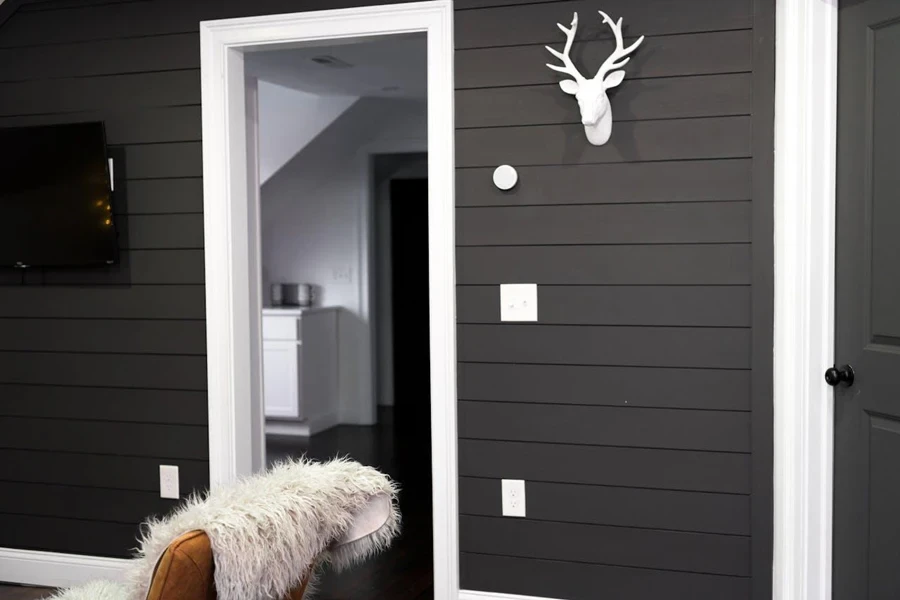
The modern or contemporary shiplap wall style typically emphasizes two main aspects: material and minimalist design. From a material perspective, innovative materials like PVC and metal are often deployed to create a sleek, polished aesthetic, matching the modern eyes of beauty assessments for both exterior and interior design. Such applications basically also ensure durability while upholding a modern look.
For this reason, PVC shiplap cladding and metal shiplap cladding are typically opted for modern designs, since both of them offer decorative and protective covering for any indoor or outdoor surfaces. On the other hand, a shiplap facade can blend functionality with contemporary appeal by providing a stylish, modern covering for the front of a building. Fundamentally, by adding shiplap styles that range from traditional to modern finishes and aesthetics, sellers can offer a versatile product lineup to cater to varying customer preferences.
Beveled shiplap wall style
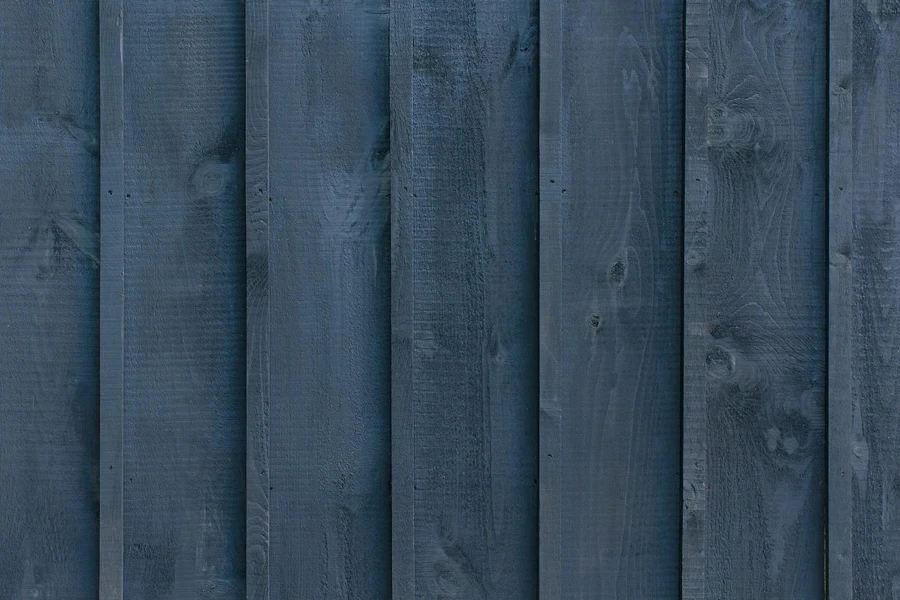
After reviewing both modern and traditional shiplap styles, it’s time to explore a design that works well for both: the beveled shiplap style. Typically crafted from wood or PVC, this shiplap style offers a refined take on both traditional and modern panels, adding a touch of complexity and a more polished, sophisticated look.
Structurally, beveled shiplap products are also believed to bring additional stability and dimension to the overall design, significantly bringing out the visual impact and unique character of the space.
The beveled edge of each beveled shiplap board, for example, often creates the illusion of a subtle gap on a shiplap wall. This gap illusion gives each board a distinct shadow line appearance, further Enriching the depth and character of the entire shiplap wall design.
Delivering quality and style
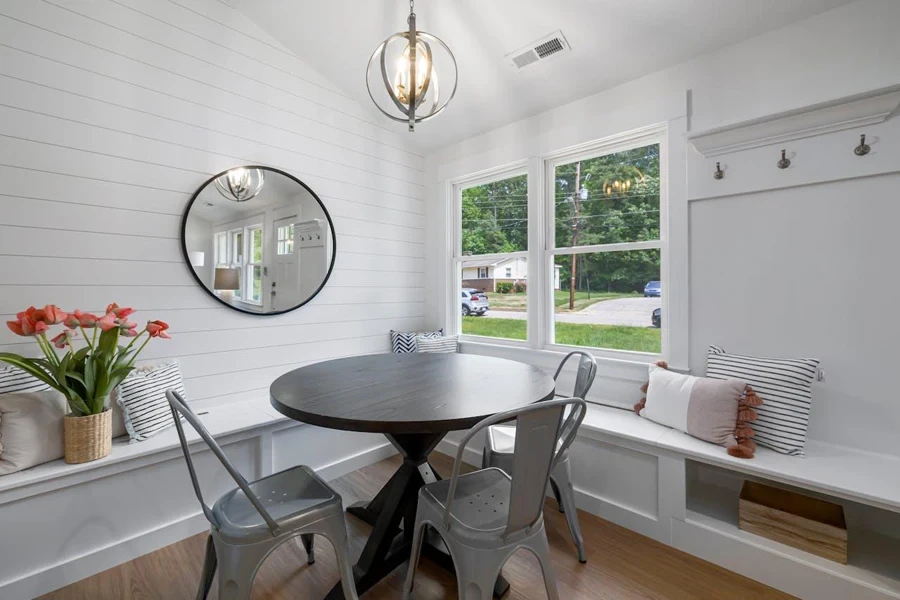
Shiplap walls help create a warm and inviting atmosphere for many private residential homes as well as commercial spaces. The steady growth of the global wall panel market signifies a strong potential for shiplap wall designs, especially as industry experts continue to champion its timeless appeal.
When selecting shiplap options, sellers should consider offering a variety of choices in different materials, sizes, and widths, including both narrow and wide shiplap styles. At the same time, sellers should aim to stock authentic shiplap options that can appeal to DIY enthusiasts for their easy installation process. Along the same lines, offering ready-to-use shiplap choices, such as pre-primed and prefinished options, ensures ease of application to attract both DIYers and professionals.
Moreover, sellers can make the most of shiplap’s moisture- and water-resistant properties by promoting these solutions for customers interested in installing shiplap in bathrooms, kitchens, or even exterior areas. Lastly, sellers should also pay attention to the top 3 shiplap styles, including traditional, modern, and beveled options, to broaden customer appeal and enhance customer satisfaction.
Continue exploring Chovm.com Reads to seize the opportunity to enhance logistics efficiency and optimize wholesale sourcing. Visit frequently to stay up-to-date with new strategies and growth ideas.

